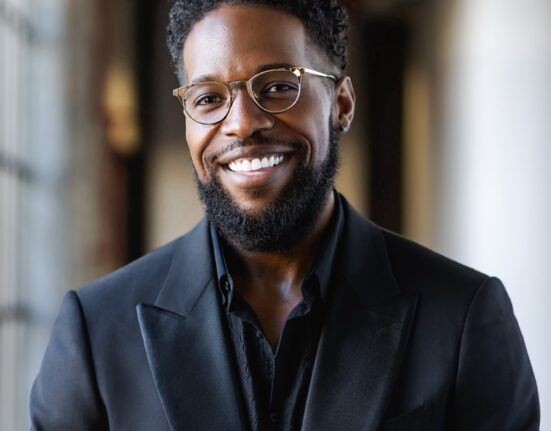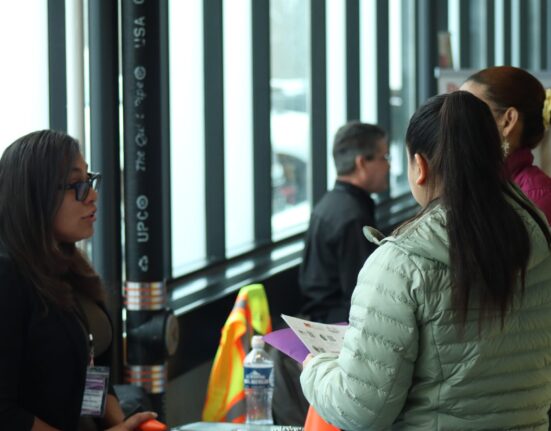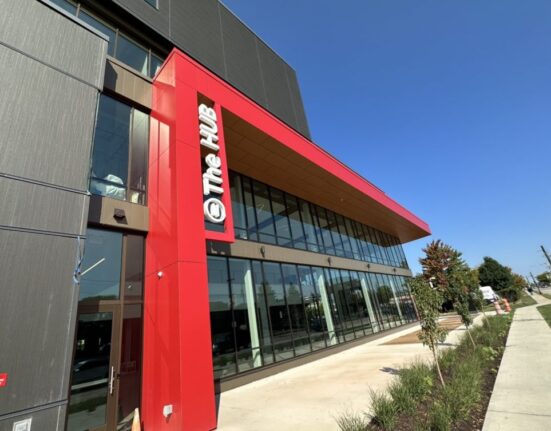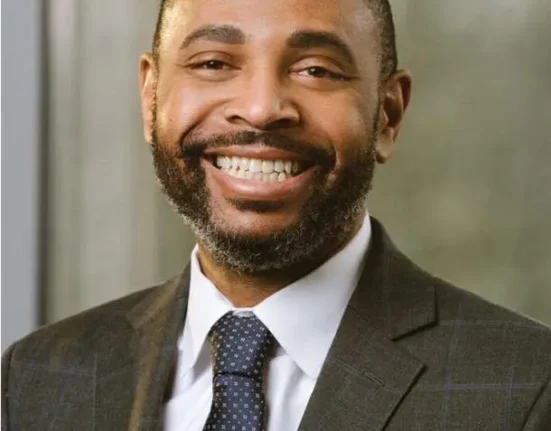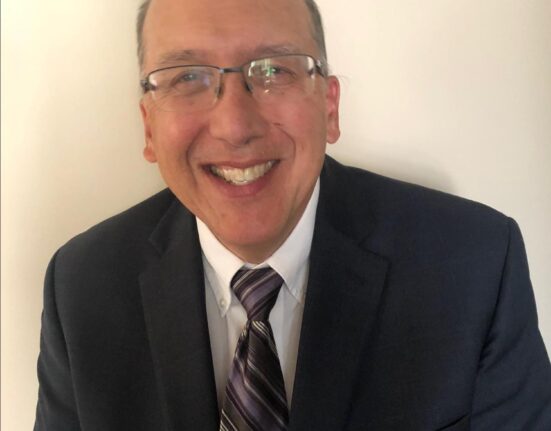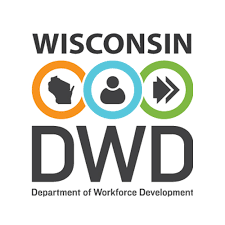Telisa Yancy always fancied herself a writer.
“I would like to think that I’m as creative as my husband, who’s a musician,” she says. “I’m not that talented, but I’m creative. I have always been a writer, I’ve always been a thinker, I’ve always been a bit of a nerd.”
She says her tight-knit extended family still recognize her as the one who always had her nose in a book, even when playing outside during long summers spent in Mississippi.
She also remembers the first time she thought about using that creativity in business, sometime around the ninth grade.
“The day that I fell in love with business is when I was reading something and got intrigued by a Coca Cola ad,” she recalls. “I went to the library and did some research, and figured out that there was a whole career where you’ve got to work on ads.”
Which is just as well, as her mother, an educator, wasn’t about to send her to college to be a writer.
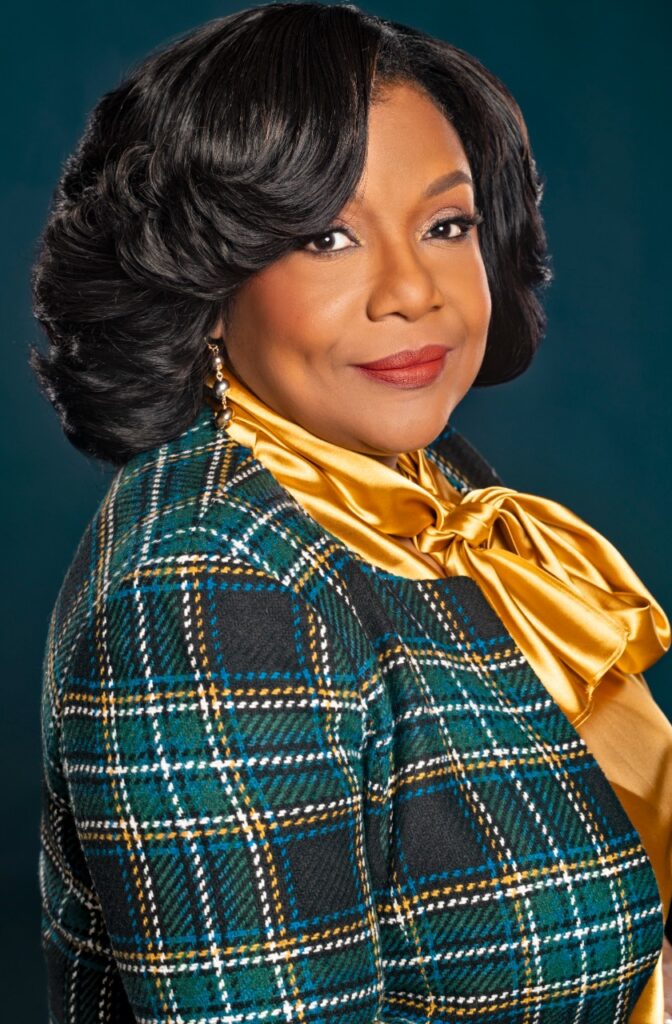
“I started off wanting to go work for Coca Cola, or to be in business or to be a writer. My mother forced me (to choose business),” Yancy says. “These are people who came from Mississippi, they’re a couple of generations removed from slavery, honestly, or from extreme poverty, as seen in the south. And she told me if I did not choose business or teaching, she was not going to take me to school.”
Yancy did choose business, at the University of Illinois, and over the 32 years since, has become one of very few Black women in the upper echelons of the Fortune 500, being named president of American Family Insurance Group in November.
“Both the city and the country”
“I am a girl from the South Side of Chicago,” Yancy says. “I like to say I am the daughter of both the city and the country.”
Her maternal grandparents came to Chicago during the Great Migration, while her paternal grandparents remained in Mississippi – giving Yancy and her cousins something of a home base in the south.
“I spent probably every summer of my life until age 14 in Mississippi,” she says. “Between those two households, we had a certain set of principles. One of them is that we believe education is the great equalizer. We believe that hard work can overcome a lot of things. But you also have to be cognizant that they all grew up in a world where the number of opportunities of access to education, access to jobs, or just to have a chance just didn’t exist for them.”
In fact, Yancy’s grandfather never made it past the third grade, when he left school to work for a sharecropper. He didn’t even learn to read until shortly before he passed away. But the family always placed a premium on education for the next generation.
“They had three children and those three children all went to college,” Yancy said.
“Creating demand”
At the Gries School of Business at the University of Illinois, Yancy learned the power of creativity in business.
“I’ve learned that it’s not just the creative process that was intriguing to me. It was the whole business value chain,” she says. “There was this whole discipline of selling things by creating demand for them versus selling things by hawking them.”
After graduating in 1990, Yancy spent many years in a variety of positions with Ford Motor Company in Detroit, Seattle and other locations, guided into marketing roles — and later management roles in sales, marketing and operations — through the company’s recent college graduate program. Yancy called the early-career program a “great way to learn the business, great way to learn business in general. Learning consumer preferences, demand, shopping behaviors.”
She went on to earn an MBA from Northwestern while working for Ford.
Yancy’s move to American Family in 2009 was a case of “who you know.” Lisa Bacus, then vice president of marketing and a former Ford coworker of Yancy, reached out to ask about contact information for another potential recruiting target who happened to be connected with Yancy on LinkedIn. After chatting a bit, Bacchus thought perhaps Yancy would be interested in a job on the marketing team, and Yancy decided to take the interview.
“I was just coming, really, to see Lisa,” Yancy recalls, adding that she really fell in love with the company and its culture upon visiting. “A free trip to come see Lisa is what I thought I was doing, and then I ended up getting the job.”
She wasn’t hesitant to move to Madison, a relatively smaller city than the places she was used to by then.
“At this point in my career, I had moved nine times, and I had learned the skill of trusting the companies that you’re partnering with,” she says.
It was a good fit, to say the least, and over the past 14 years she’s gone from director of advertising, brand and media to marketing VP to CMO to COO to president of American Family Direct to president of the entire enterprise. Along the way she’s also been honored with the 2022 Impact Award, 2022 Most Powerful African American Executive Award, been named to the Ebony Power 100 and a 2017 Adage Woman to Watch, and one of Wisconsin’s most influential Black leaders.
“I am driven, but not driven for necessarily titles,” she says. “(I’m driven) for the capacity to, as a business and as a member of a team, sort of outwit and outperform the competition in a way that the customer is delighted, and the team has some joy, and they feel pretty good about what they’re doing along that journey.”
One thing she noticed about the company early on – and to which she has contributed over the years – is the company’s commitment to doing some good in the world.
“The soul of the company, which sounds like a very strange concept, has been rooted in growing and doing good at the same time. The purpose of the business is to provide the functional benefit that we provide to our customers who choose us, but it is also to enrich the communities that those customers live in, and to enrich the lives of the employees,” she says. “You might think of insurance as a segment of financial services …. But if you get to know the company – which I believe is what keeps me here – the mission is impactful, and something that gets you up in the morning … to serve customers better, but also to serve the community better.”
She says the biggest challenge to the insurance industry in the near future is similar to a major challenge in almost every other sector: talent.
“A lot has changed over the last couple of years, and hastened by the pandemic. I think we all should be concerned about talent,” Yancy says. “Do we have the right talent supply? Do you have the right talent pools? Do they want to live in the right markets? How do you adapt to this changing hybrid environment? How do you embrace the notion that there are some skills and talents that potentially won’t be recruited the same way they were several years ago? It will be our success if we continue to attract diverse talent, where everyone feels included and capable to bring their full self to work, work in order to contribute to our purpose, as a company and to continue to allow us to thrive as a company that’s helping people to protect the most valuable thing that they own.”

